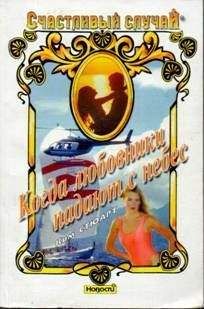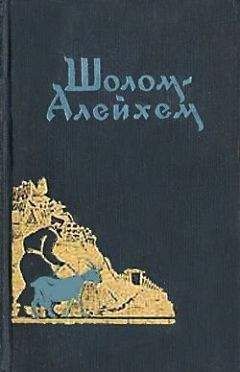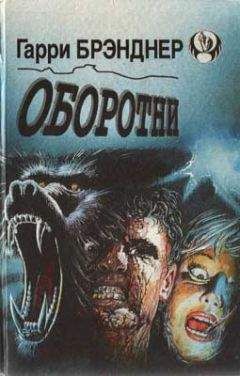Joe Haldeman - Forever Peace
"I'm afraid for you, old friend. Give me the weapon."
Julian turned in the half-light. "Oh. I see." He stuck the pistol in his belt. "Don't worry, Claude. I'm okay with that."
"Sure?"
"Sure enough. Pills, maybe. Guns, no." He walked around the soldierboy and into the hall. "Marty. How many people do we have who aren't humanized?"
It took Marty a minute to find the composure to answer. "Well, a lot of them are partway. Everyone who's recovered from surgery is either humanized or hooked up.
"So how many haven't been operated on? How many people in this building can fight?"
"Maybe twenty-five, thirty. Most over in E Wing. The ones who aren't under guard downstairs."
"Let's go there. Find as many weapons as we can."
Claude came up behind him. "We had lots of NLIs in the old soldierboys" – the somewhat pacifistic weapons of nonlethal intent – "and some of them must still be intact."
"Get them, then. Meet us over at E Wing."
"Let's take the fire escape," Amelia said. "We can sneak around to E without going through the lobby."
"Good. Do we have all the soldierboys?" They started toward the fire escape.
"Four," Claude said. "But the other six are harmless, immobilized."
"Do the enemy shoes know yet?"
"Not yet."
"Well, we can capitalize on that. Where's Eileen?"
"Down in the mess hall. She's trying to figure out a way to disarm the shoes without anybody getting hurt."
"Yeah, good luck." Julian opened the window and looked out cautiously. Nobody in sight. But then, down the hall, the elevator pinged.
"Everybody look away and cover your ears," Claude said. When the elevator door opened, he launched a concussion grenade down the hall.
The flash and bang blinded and deafened the shoes who had been sent to check on Blaisdell. They started shooting at random. Claude stepped between the firing and the window. "Better move," he said unnecessarily. Julian was pushing Amelia through the window in an ungentlemanly way, and Marty was about to crawl over both of them.
They pounded down the metal steps and sprinted toward the ell of E Wing. Claude fired scary bursts that just missed them, alternating machine gun and laser, that chewed up and scorched the ground to their left and right in the darkness.
The people in E Wing had already armed themselves as much as possible-there was a storage room with a rack of six M-31s and a box of grenades-and had improvised a defensive position by piling up mattresses in a shoulder-high semicircle at the end of the main corridor. Their lookout, fortunately, recognized Julian, so when they burst through the front door they weren't mowed down by the distinctly unhumanized, and completely terrified, group behind the mattresses.
Julian outlined the situation for them. Claude said that two of the soldierboys had gone outside to check on the remains of our original soldierboys, the ones with weapons of nonlethal intent. The current crop of soldierboys were peaceful types, but it's hard to express your pacifism with grenades and lasers. Tear gas and vomiting agent didn't kill, but it was less dangerous just to put people to sleep and collect their weapons.
As long as the enemy shoes stayed inside, that was a possibility. Unfortunately, Building 31 wasn't set up the way the Guadalajara clinic and St. Bart's were, where you could maneuver people into the right room and push a button and knock them out. But two of the original soldierboys had been carrying crowd-control canisters of Sweet Dreams, which was a combination knockout gas and euphoriant – you put them to sleep and they wake up laughing.
Both of those machines, though, were wreckage strewn along about a hundred meters of beach. The two searchers sorted through the scattered junk pile and did come up with three intact gas canisters. But they were all identical modules; there was no way to tell whether they would make you sleep or cry or puke. With a normal cage hookup, the mechanics could have let out a little gas and smelled it, but they couldn't smell anything with the remote.
They didn't have a lot of time to work on the problem, either. Blaisdell had covered his tracks well, so they weren't getting any long-distance calls from the Pentagon, but there was plenty of curiosity in Portobello itself. For a training exercise, aspects of it were profoundly real; two civilians had been injured by stray rounds. Most of the city was huddled in cellars. Four squad cars of police ringed the entrance to the base, with eight nervous officers hiding behind their cars shouting, in English and Spanish, at a soldierboy guard that didn't respond. They couldn't know it was empty.
"Be back in a minute." The soldierboy controlled by Claude went rigid as its operator rotated to check out the six immobilized ones. When he got to the one at the front gate, he fired a few laser bursts at the tires of the squad cars, which made nice explosions.
He inhabited one in the mess hall for a few minutes while Eileen expedited a solution to the lady-and-the-tiger canister problem. She took three "prisoners" (choosing among officers she didn't care for) and marched them down to the beach.
It turned out that they did have one each of each variety: one colonel fell asleep blissfully and another was blinded by tears. A general got to practice his projectile vomiting technique.
Claude rotated back to E Wing when Eileen's soldierboy walked into the mess hall with a gas canister under its arm. "I think we're almost out of danger," he said. "Anybody know where we can find a few hundred yards of rope?"
I DID KNOW WHERE some rope was stashed, clothes-line in the laundry room, I guess in case all the dryers broke down at the same time. (Thanks to my exalted former position in Building 31, I may have been the only person who knew about the rope, or where you could find three dusty cans of twelve-year-old peanut butter.) We waited a half hour for fans to blow out the residual Sweet Dreams, and then went into the mess hall to sort through friends and foe, disarming and tying up Blaisdell's troops. All men, it turned out, all built like fullbacks.
There was enough of the Sweet Dreams hanging around to give you a little buzz, relaxing and uninhibiting. We stacked Blaisdell's commandos in pairs, face to face, assuming and hoping they would wake up in a homophobic panic. (A side effect of Sweet Dreams for males is profound tumescence.)
One of the shoes had a bandolier of tumbler ammunition. I took it outside and sat on the steps, my head clearing as I shoved the rounds into the weapon's side port. There was a faint glow to the east. The sun was about to rise on a most interesting day. Maybe my last.
Amelia came out and sat down next to me silently. She stroked my arm.
"How are you doing?" I asked.
"I'm not a morning person." She took my hand and kissed it. "It must be hell on you."
"I took my pills." I jammed the last round in and hefted it. "I killed a major general in cold blood. The army's going to hang me."
"It was as you told Claude," she said. "Self-defense. Defending the whole world. The man was the worst kind of traitor imaginable."
"Save it for the court martial." She leaned against me, crying softly. I put the gun down and held her. "I don't know what the hell's going to happen now. I don't think Marty does, either."
A stranger came running toward us, his hands in the air. I picked up the weapon and pointed it in his direction. "This facility is closed to unauthorized personnel."
He stopped about twenty feet away, his hands still in the air. "Sergeant Billy Reitz, sir, motor pool. What on earth is going on?"
"How did you get in here?"
"I just ran by the soldierboy; nothing happened. What is all this craziness?"
"As I said – "
"I don't mean in there!" He gestured wildly. "I mean out here!"
Amelia and I looked out past the compound's fence. In the dim dawn light stood thousands of silent people, stark naked.
THE FEWER THAN TWENTY individuals who comprised the Twenty were able to solve interesting and subtle problems with their combined experience and intelligence. They'd had this enhanced ability from the first instant they were humanized.
The thousands of POWs in the Canal Zone were a much larger entity, which only had two problems to work on: How do we get out of here? and What then?
Getting out was so easy as to be almost trivial. Most of the labor in the camp was done by POWs; together, they knew more about how it actually ran than did the soldiers and computers that ran it. Taking over the computers was simple, a matter of properly timing a simulated medical emergency in order to get the right woman (whom they knew to be kindhearted) to leave her desk for a crucial minute.
This was at two in the morning. By two-thirty, all the soldiers had been awakened at gunpoint and marched to a maximum-security compound. They gave up without a shot being fired, which was not surprising, given that they faced thousands of apparently angry armed enemy prisoners. They couldn't know that the enemy were not really angry, and constitutionally unable to pull the trigger.
None of the POWs knew how to operate a soldierboy, but they could turn them off from Command and Control, and leave them immobile while they pried the mechanics out of their cages, and took them down to join the shoes in prison. They left them plenty of prison food and water, and then went on to the next step.
They could have simply escaped and dispersed. But then the war would go on, the war that had turned their peaceful, prosperous country into a strangled battlefield.
They had to go to the enemy. They had to offer themselves.
There were regular freight shipments between Portobello and CZ via monorail. They left their weapons behind, along with a few people who could speak perfect American English (to maintain for a few hours the illusion of a functioning POW camp), and crowded into a few freight cars manifested as fresh fruit and vegetables.
As the cars pulled in to the commissary station, they all undressed, so as to present themselves as totally unarmed and vulnerable-and also to confuse the Americans, who were strange about nudity.
Several of their number had been sent to the camp from Portobello, so when the doors opened and they stepped in unison into the shocked floodlights, they knew exactly where to go.
Building 31.
I WATCHED THE SOLDIERBOY at the guard box teeter for a second and then swivel, taking in the magnitude of the phenomenon.
"What the hell is going on?" Claude's voice boomed out. "Que pasa?"
A wrinkled old man shuffled forward, holding a portable jack transfer box. A shoe rushed up behind him, raising an M-31 butt-first.
"Stop!" Claude said, but it was too late. The buttplate smacked into the old man's skull with a cracking sound, and he skidded forward to lie at the soldierboy's feet, unconscious or dead.
It was a scene the whole world would see the next day, and nothing Marty could have orchestrated would have had such an effect.
The POWs turned to look at the shoe with expressions of quiet pity, forgiveness. The huge soldierboy knelt down and carefully scooped up the frail body, cradling him, and looked down at the shoe. "He was just an old man, for Christ's sake," he said quietly.
And then a girl of about twelve picked the box up off the ground and pulled out one cable and offered it wordlessly to the soldierboy. It went down on one knee and accepted it, awkwardly plugging it in while not letting go of the old man. The girl plugged the other jack into her own skull.




